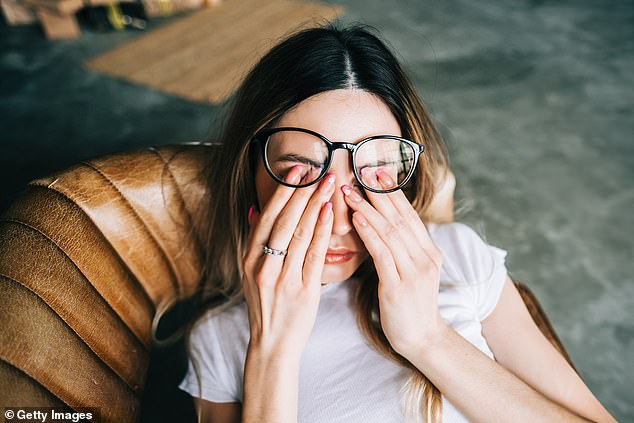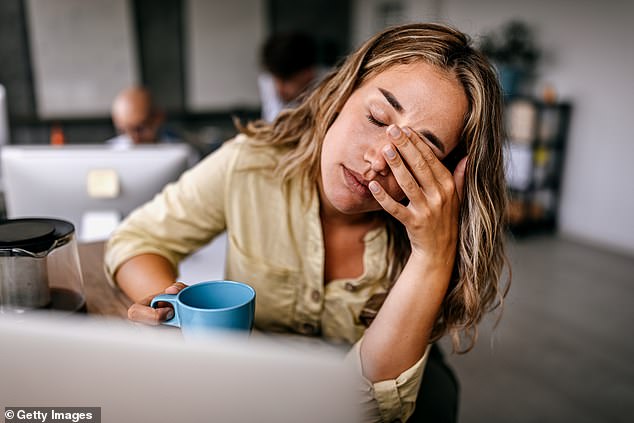When the clocks go back, I immediately feel tired. I’ve always put it down to darker, shorter days, aversion to the cold and too many mulled wines on winter evenings. But it’s not fun trying to tackle Christmas while also feeling constantly exhausted – so I decided to get an expert on the case.
According to Dr Deborah Lee from Dr Fox Online Pharmacy, I’m not just imagining my change in energy levels. Women are disproportionately affected by winter tiredness, thanks to a mix of hormones, biology and lifestyle pressures that all intensify once daylight hours drop.

To understand why fatigue peaks for women in the colder months – and how to get your energy back – I asked Dr Lee to break down the science behind winter fatigue, the red flags that it might be something more serious and the fixes that actually help deliver a much-needed boost when you’re seriously flagging.
Why do so many women feel more tired in winter?
According to Dr Lee, women are more susceptible to winter tiredness for several reasons.
First is Seasonal Affective Disorder (SAD), which is much more prevalent in women. ‘Around 1 in 20 people are affected by SAD, and four out of five of them are women,’ she notes. Symptoms typically start in autumn and continue through winter, and can include low mood, oversleeping, lack of interest and profound fatigue.
It’s not well understood why women suffer more with SAD, but it may well be linked to serotonin levels. Sunlight helps the body make vitamin D, and vitamin D is needed to produce serotonin – the hormone responsible for mood and energy. ‘Women tend to have lower vitamin D levels than men,’ Dr Lee adds, which may make them more vulnerable in darker months.
Fluctuating oestrogen levels can compound the problem. ‘Oestrogen helps create serotonin,’ she explains. ‘Women experience more hormonal fluctuation in the winter than in the summer months,’ Dr Lee says, which may again hinder the production of energy-boosting serotonin.
Women also produce more melatonin – the sleep hormone – than men, and melatonin rises further in winter. ‘When specialised cells at the back of the eye detect light, this switches off melatonin production and tells the brain it’s time to wake up,’ Dr Lee explains. ‘When it gets dark, the eye detects the absence of light and switches on melatonin production, telling the brain it’s time for us to go to sleep. Hence the shorter the days, the more melatonin is produced, and the sleepier we feel.’
And then there’s the cold factor. Women have less muscle and more fat than men (it’s an evolutionary difference that helps support the high energy demands of fertility and fetal development). Muscle generates heat efficiently; fat doesn’t. ‘Women often feel the cold more, and feeling the cold makes you feel tired,’ Dr Lee explains.
What are the most common medical or nutritional causes of tiredness in women? 
Tiredness is one of the most common reasons people see their GP. ‘Around 10–20% of all consultations are about feeling tired,’ says Dr Lee. The most common culprits? Stress, poor sleep, a low-quality diet and mental health conditions such as depression or anxiety.
But sometimes, persistent fatigue points to a medical condition. These include:
- Diabetes
- Hypothyroidism
- Iron-deficiency anaemia
- Kidney or liver disease
- Chronic infections (such as glandular fever)
- Autoimmune conditions (such as rheumatoid arthritis or lupus)
- Myalgic encephalitis (ME)
Women are particularly prone to iron-deficiency anaemia (often due to heavy periods), thyroid disease, and autoimmune disorders – all of which can present as exhaustion. Postmenopausal women also experience higher rates of sleep apnoea, which often goes undiagnosed and can cause lower-quality sleep and fatigue.
How can women tell the difference between ‘normal’ tiredness and fatigue that needs investigating?
‘Everyone feels tired sometimes,’ says Dr Lee. But if tiredness lasts more than a few weeks and is getting worse, it’s time to see a GP – especially if it’s stopping you from living normally.
Other warning signs include:
- Unexplained weight loss or gain
- Night sweats
- Unusual bruising or bleeding
- Chest pain or breathlessness
- Changes in bowel habits
And don’t ignore snoring. ‘As much as 80% of sleep apnoea is undiagnosed,’ Dr Lee notes, and resolving that condition will significantly improve your energy levels.
Which vitamin or mineral deficiencies are most common in women – and do supplements actually help?
Vitamin D deficiency is widespread – in part due to the good old British weather. ‘Nearly half of the UK population has suboptimal vitamin D levels,’ says Dr Lee, and women have slightly lower levels than men. The NHS recommends all adults take a 400 IU (10 mcg) supplement daily from October to March.
Other important nutrients include:
- Folic acid – essential for anyone planning pregnancy (400 mcg daily)
- Vitamin B12 – important for vegans and vegetarians, who may also need an iodine supplement
However, Dr Lee warns against taking iron ‘just in case’. ‘Women should not take iron unless they have been diagnosed as deficient,’ she says, as it’s hard for the body to metabolise. Excess iron can build up and become harmful.
How much of winter tiredness is linked to mood changes or Seasonal Affective Disorder (SAD)?
‘Much winter fatigue is due to SAD,’ Dr Lee confirms. The spectrum ranges from mild winter blues to significant depression. Around 35% of the UK experience some form of mood change during winter.
What role do hormones play? 
Hormonal shifts make women particularly vulnerable to tiredness, and this can intensify during certain stages of life.
‘At perimenopause, oestrogen levels can fall by up to 90%,’ Dr Lee explains. Oestrogen is crucial for producing serotonin and melatonin – so low levels can trigger low mood, poor sleep and reduced energy.
Hot flushes and night sweats disrupt sleep further, and given 80% of women report experiencing them, it’s no wonder we’re all exhausted. Falling progesterone levels can also cause anxiety and restlessness by reducing GABA – the brain’s calming chemical – making it harder to sleep.
Low oestrogen can also impair cognition. ‘This is sometimes called brain fog,’ Dr Lee notes, and can make you feel as if you’re mentally exhausted.
Which lifestyle changes help improve energy levels?
According to Dr Lee, the good news is even small tweaks can make a noticeable difference to your energy levels.
‘Exercise stimulates circulation and oxygen flow,’ she says, ‘and activates the mitochondria – the body’s energy factories.’ Even a 10–15-minute walk once or twice a day can help.
‘Losing weight will also make you feel less tired,’ she advises. On a basic level, your body is less heavy to carry around and your heart is under less strain in a smaller, lighter body. ‘When you lose one pound of fat, you take four pounds off your knees and seven pounds off your spine!’ Dr Lee adds. Losing weight also improves mental health, and when you feel happier in yourself, you will find you have more energy.
‘Many of us are under immense stress,’ says Dr Lee. Knowing how to relax can help improve sleep quality. She recommends mindfulness, meditation, the 4-7-8 breathing technique and CBT. NHS Talking Therapies also offers free self-referral.